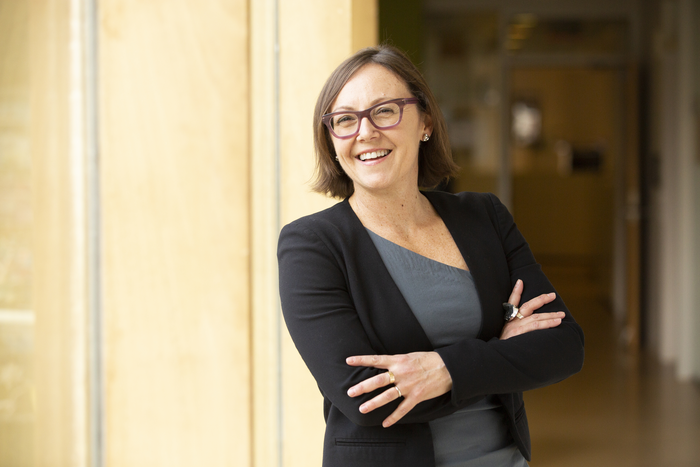Johannes Gutenberg University Mainz (JGU) will be honoring biologist Professor Paola Arlotta of Harvard University by presenting her with the 2023 Gutenberg Research Award, the most eminent research prize awarded by the university. The award comes with an endowment of EUR 10,000 and is conferred annually by the Gutenberg Research College (GRC), JGU’s central institution designed to promote top-level research. Paola Arlotta is chair of the Harvard Department of Stem Cell and Regenerative Biology. She will receive the prize on May 15th, 2023, at this year’s GRC annual award ceremony. While in Mainz, she will enter into an in-depth dialogue with her counterparts here on aspects of research in the field of the neurosciences and report on her work to the members of the Focus Program Translational Neurosciences (FTN) at JGU.

Credit: photo/©: Stephanie Mitchell/Harvard University
Johannes Gutenberg University Mainz (JGU) will be honoring biologist Professor Paola Arlotta of Harvard University by presenting her with the 2023 Gutenberg Research Award, the most eminent research prize awarded by the university. The award comes with an endowment of EUR 10,000 and is conferred annually by the Gutenberg Research College (GRC), JGU’s central institution designed to promote top-level research. Paola Arlotta is chair of the Harvard Department of Stem Cell and Regenerative Biology. She will receive the prize on May 15th, 2023, at this year’s GRC annual award ceremony. While in Mainz, she will enter into an in-depth dialogue with her counterparts here on aspects of research in the field of the neurosciences and report on her work to the members of the Focus Program Translational Neurosciences (FTN) at JGU.
“Paola Arlotta is among the world’s most prominent researchers whose work is of multidisciplinary relevance. By presenting her with the 2023 Gutenberg Research Award, we are paying tribute to her pioneering discoveries with regard to the process of brain growth and abnormal neurocerebral development as well as her innovative approaches to treating cerebral disease,” said Professor Siegfried Waldvogel, Director of the GRC. “In addition, we are recognizing her commitment to the promotion of early-career researchers, particularly women and underrepresented minorities.”
Groundbreaking insights into the development of the human cerebral cortex
Paola Arlotta grew up in Capriva del Friuli in Northeast Italy and studied biochemistry at the University of Trieste. She was awarded her Ph.D. in molecular biology by the University of Portsmouth in the UK in 2000, subsequently relocating to Harvard University. “There she has accomplished remarkable achievements in her research into the development of the cerebral cortex,” emphasized Professor Susann Schweiger, Director of the Institute of Human Genetics at the University Medical Center Mainz. Schweiger and her colleague Professor Benedikt Berninger of the Institute of Physiological Chemistry at the University Medical Center Mainz had nominated Arlotta for the award. “Among other things, Arlotta has managed to refute the long-held view that neuronal identity remains untransformed in the brain and has thus helped open up a completely new field of research,” said Schweiger. Through her visionary work she has continued to contribute to paradigm shifts in the field of the neurosciences. In the recent past, Arlotta was even able to cultivate cortical organoids from human stem cells. This has formed the basis for her convincing model of the development of the human brain cortex that has resulted in the discovery of core mechanisms underlying developmental disorders of the nervous system.
“It is not only in terms of research that Paola Arlotta sets an example to upcoming young researchers,” added Schweiger. “She is also co-leader of a program designed to support female researchers and is widely commended for the fact that she has substantially increased the proportion of women and members of minority groups working at her department.” Arlotta has already received various research prizes, including the Robertson Stem Cell Investigator Award of the New York Stem Cell Foundation and the Friedrich Wilhelm Bessel Research Award of the Alexander von Humboldt Foundation. It was this latter that financed her previous stay at the University Medical Center Mainz back in 2017.




